During the event of Think Chicago last week Howard gave a speech on Entrepreneurship to a crowd consist of mostly college students like me. It’s, in my opinion, sensational in the sense that it resonates deeply with ideas and thoughts that have been formed inside my mind during a few month long start-up endeavor. Using my phone, I took pictures of some slides of Howard’s speech and hereby share them with you guys along with personal interpretation of some of them, leaving along those I have not fully comprehended in the hope that they will become future reference and source of inspiration for myself as well as my fellow entrepreneurs. I think you will enjoy and benefit from the notes as much as I do.
Let’s get started with little background with Howard Tullman. Being the CEO of investment firm he is also an Adjunct Professor at Northwestern’s Kellogg School of Management. His extraordinary vision on entrepreneurship has helped many start-ups take off in a variety of industries.
Medical care is the only industry that I will not start a business in
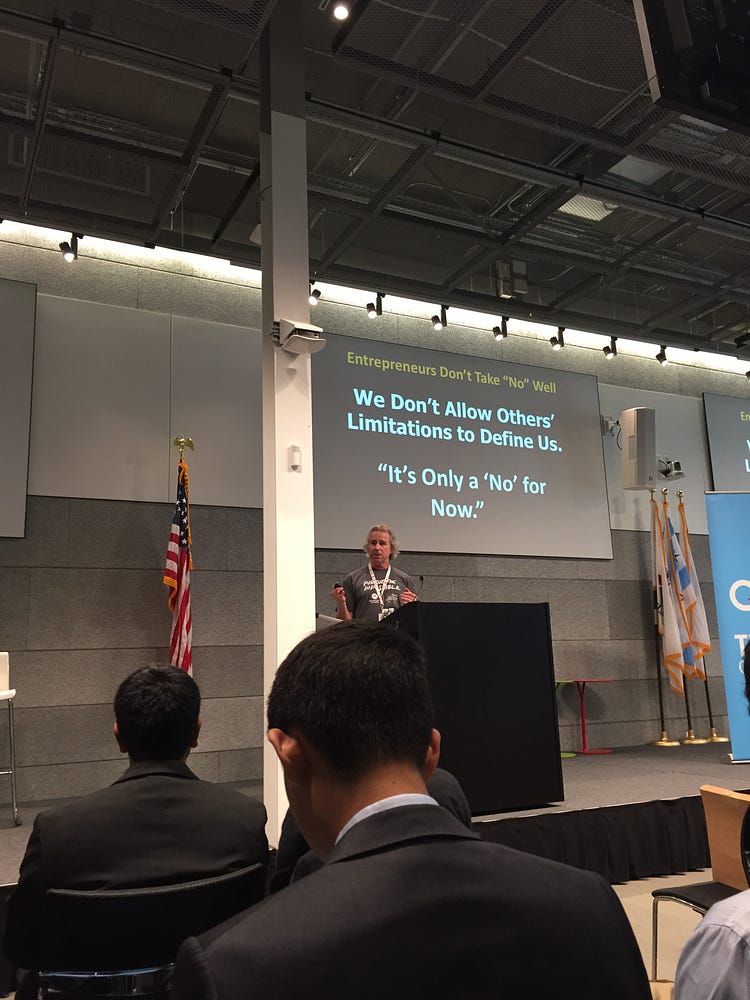
We Don’t Allow Other’s Limitation to Define Us.
Many of us are living by the definition set by other people around us: parents, siblings, friends and even acquaintances. Our inertia to try out new things and new life is mostly driven by doubts and fear other than actual failure. Just because your parents are not able to start a business and change the world in the process is NO indication that you cannot. Other people’s limitation are theirs and theirs alone. No matter how relentlessly they are trying to tell you that you are bound by their rules as well, it’s up to you to eventually choose which path to go and it’s you who actually travels the path you chose.
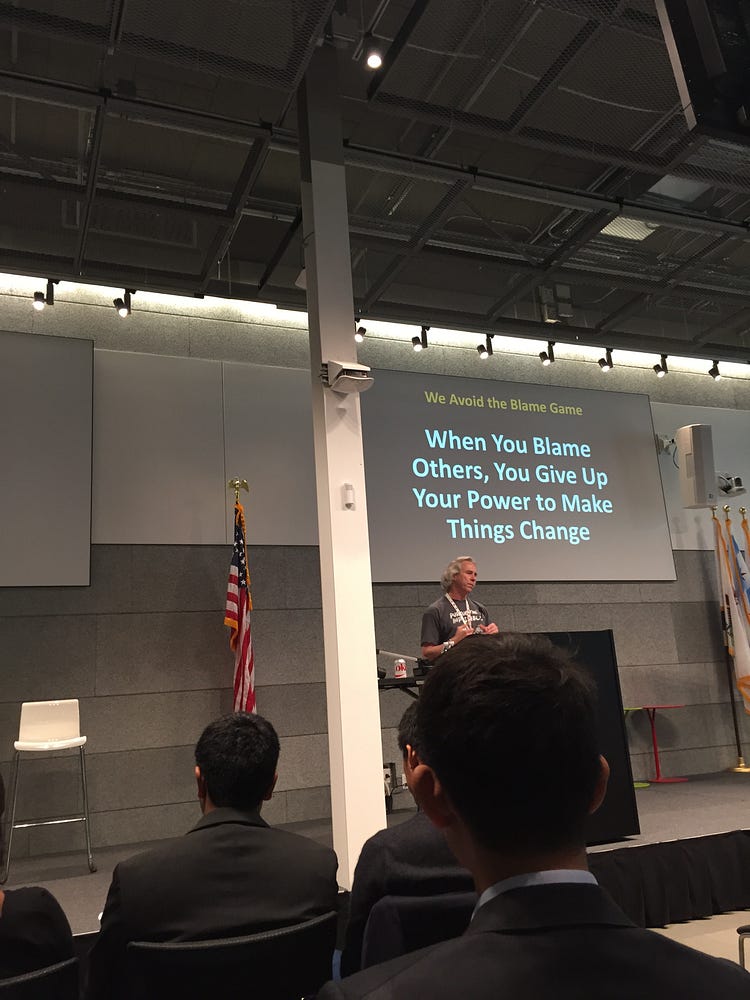
When You Blame Others, You Give Up Your Power to Make Things Change
When you are committed to the life of entrepreneur it essentially means you are committed to a life of problems. Spending time to assign blame every time a problem comes up, you will not have energy to solve them anymore.

There’s No Such Thing as a Good Excuse. When You Settle for Less than You Deserve, You Get Less Than You settled for
Always push the envelope. The reason it’s dead simple: you really get one chance to do this right. Yes, you can absolutely try harder next time, but the time devoted in the better next time could have been put into the enhancement and continuation of the successful first time. When you realize that your time and energy is finite, you will see that you indeed only get one chance to do something right.
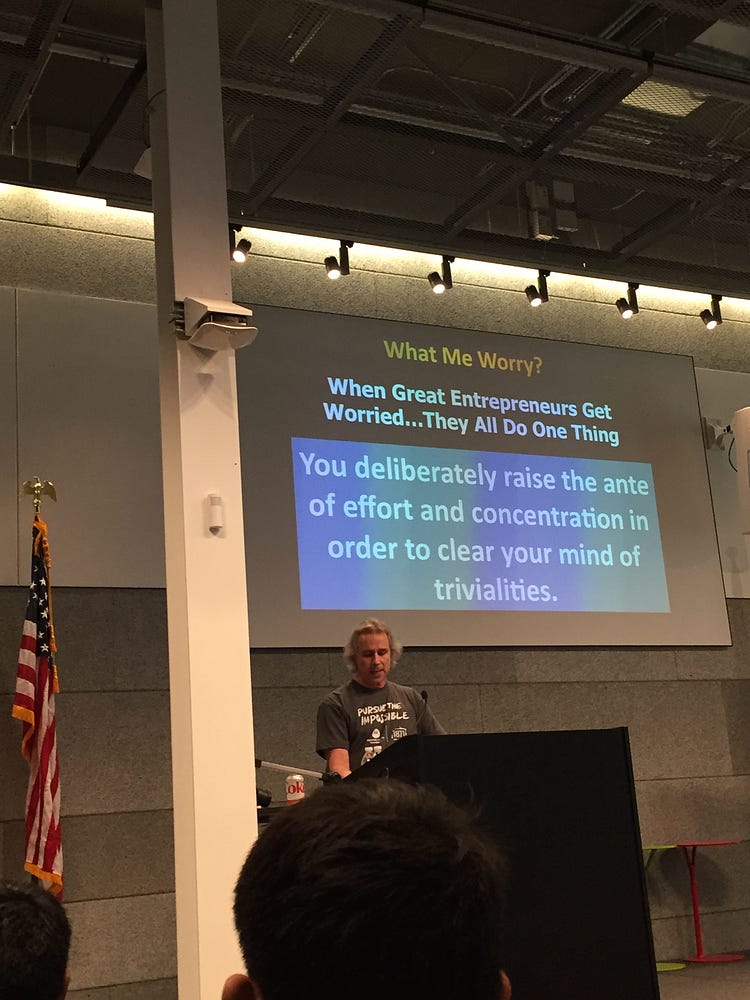
You deliberately raise the ante of effort and concentration in order to clear your mind of trivialities.
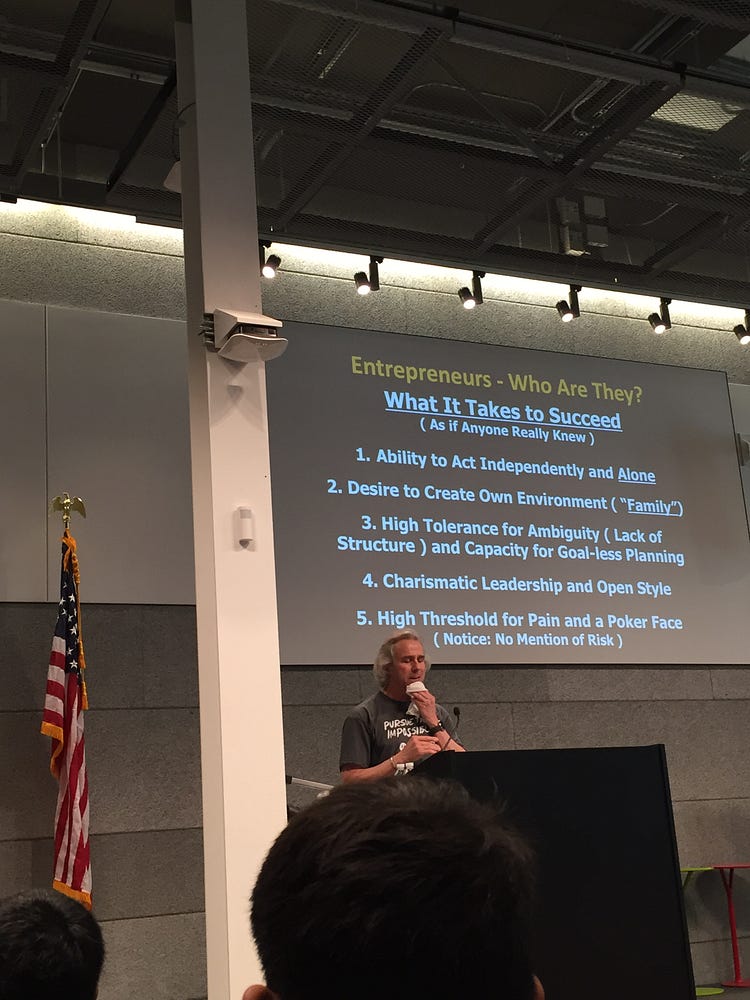
What It Takes To Succeed(As if Anyone Really Knew).
1. Ability to Act Independently and Alone.
2. Desire to Create Own Environment(“Family”).
3. High Tolerance for Ambiguity(Lack of Structure) and Capacity for Goal-less planing.
4. Charismatic Leadership and Open Style.
5. High Threshold for Pain and Poker Face(Notice: No Mention of Risk)
Acting independently requires both courage and will. Making decision yourself is terrifying at first but it’s way more intellectually satisfying than taking order from others for your life.
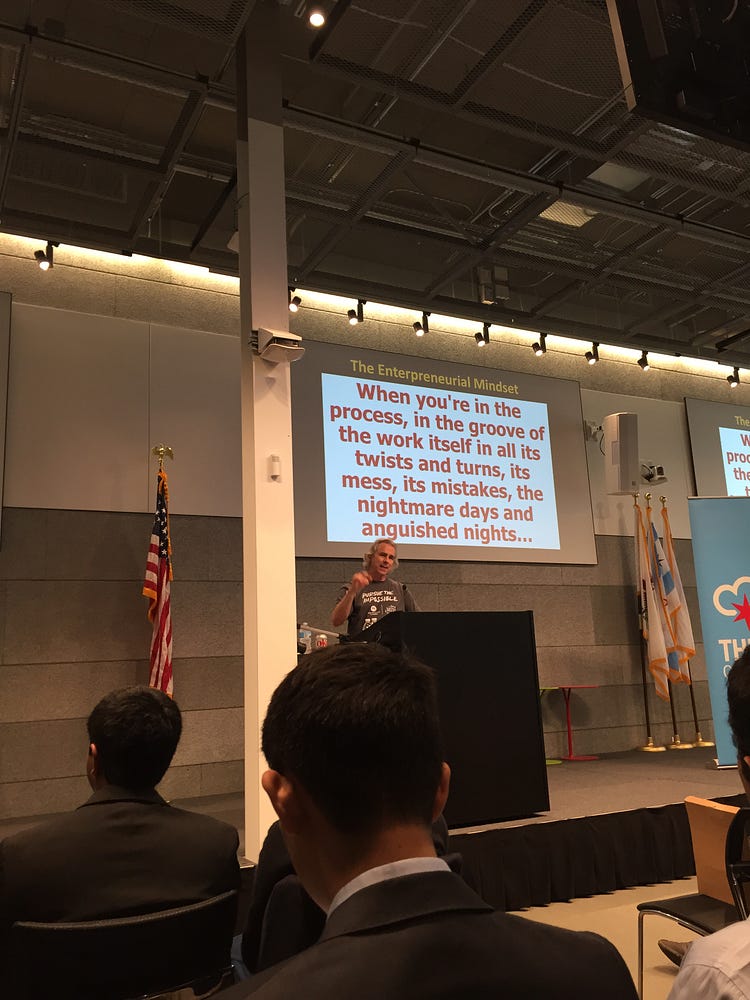
When you are in the process, in the groove of the work itself in all its twists and turns, its mess, its mistakes, the nightmare days and anguished nights…
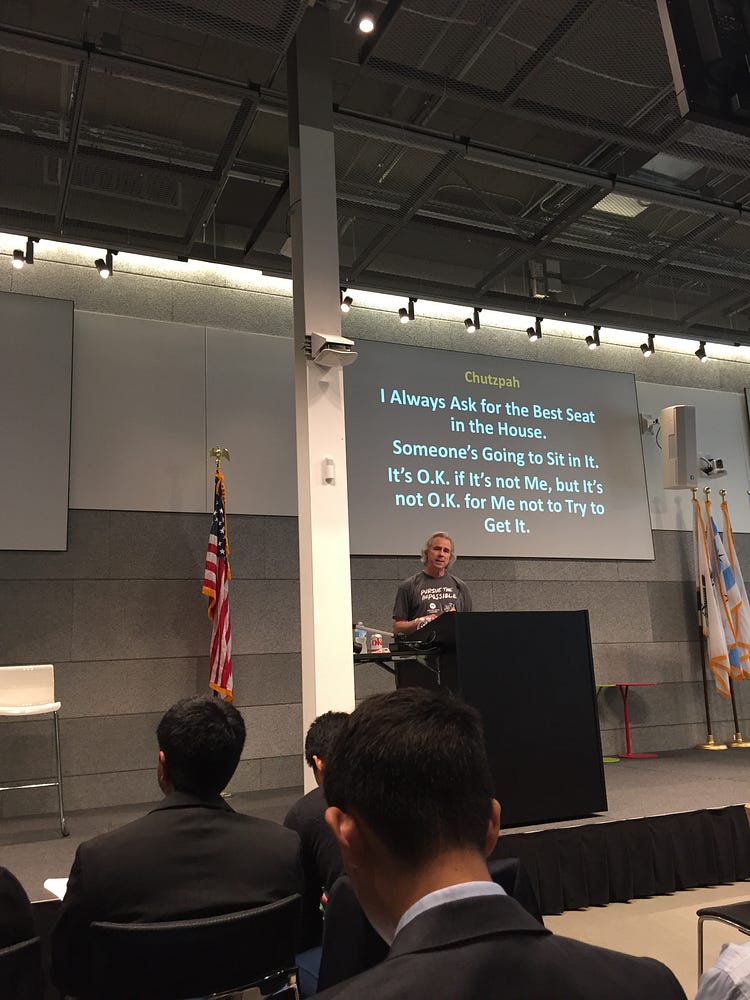
I Always Ask for the Best Seat n the House. Someone’s Going to Sit in it. It’s OK if it’s not Me, but it’s not OK for Me not to Try to Get it.
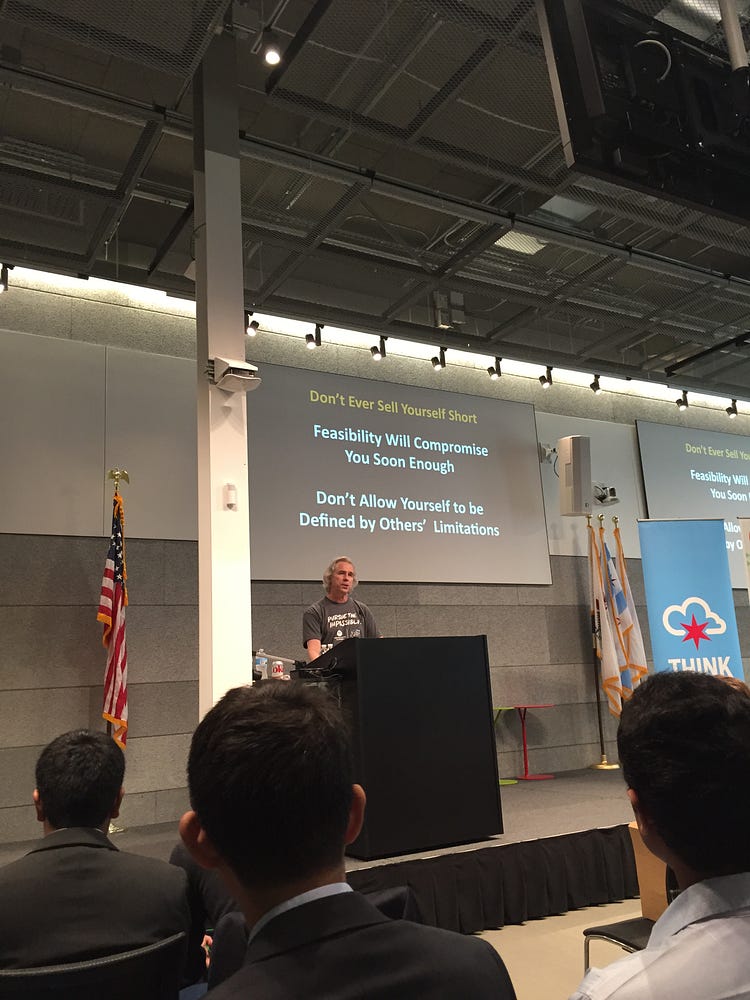
Don’t Ever Sell Yourself Short. Feasibility Will Compromise You Soon Enough. Don’t Allow Yourself to be Defined by Others’ Limitation.
The fact that other people suck has nothing to do with you, it’s horrible thing to include other people’s weakness in your own equation of success. Just never doubt in your ability and potential because if you do you simply won’t get where you want to be. Don’t get me wrong, difficulties will be encountered more often than you can imagine, you need to act fast to learn from these feedbacks and don’t think these feedbacks are your limitations. “Fears kill more dreams than failures ever will”.
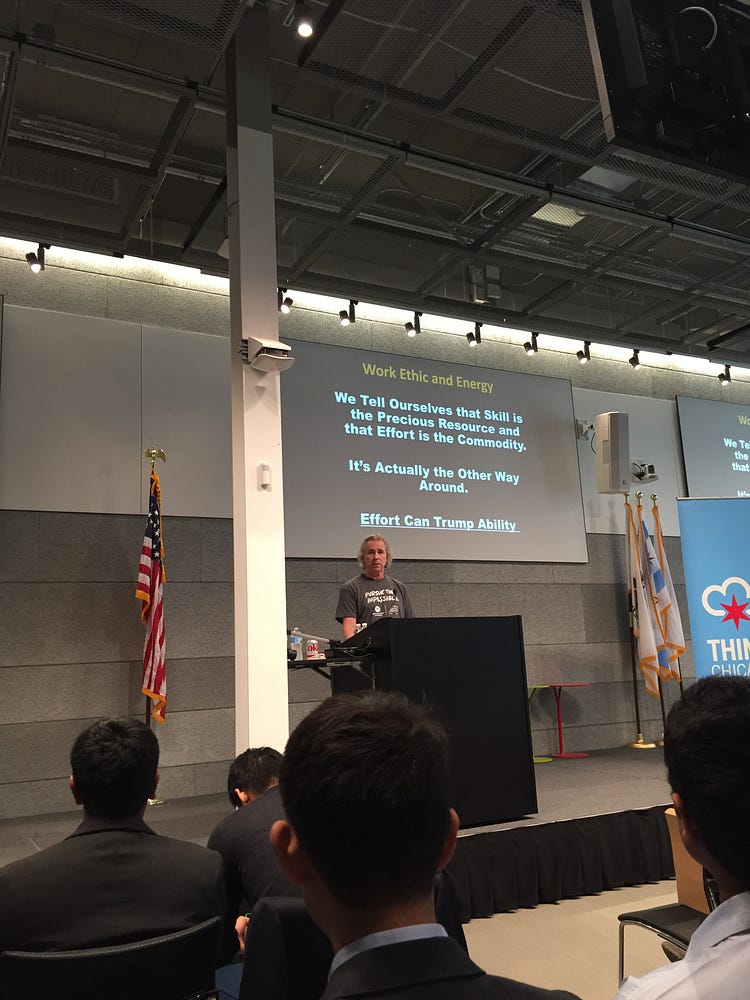
Work Ethic and Energy. We Tell Ourselves that Skill is the Precious Resource and that Effort is the Commodity. It’s Actually the Other Way Around. Effort Can Trump Ability.
Effort is trait and ability is skill. Skill can always be obtained through training when you have the effort.

If We Can’t Outsmart Them, We Can Always Outwork Them.
First, It’s very unlikely you can’t outsmart them. Second, you can work hard enough to reach a point to outsmart them.
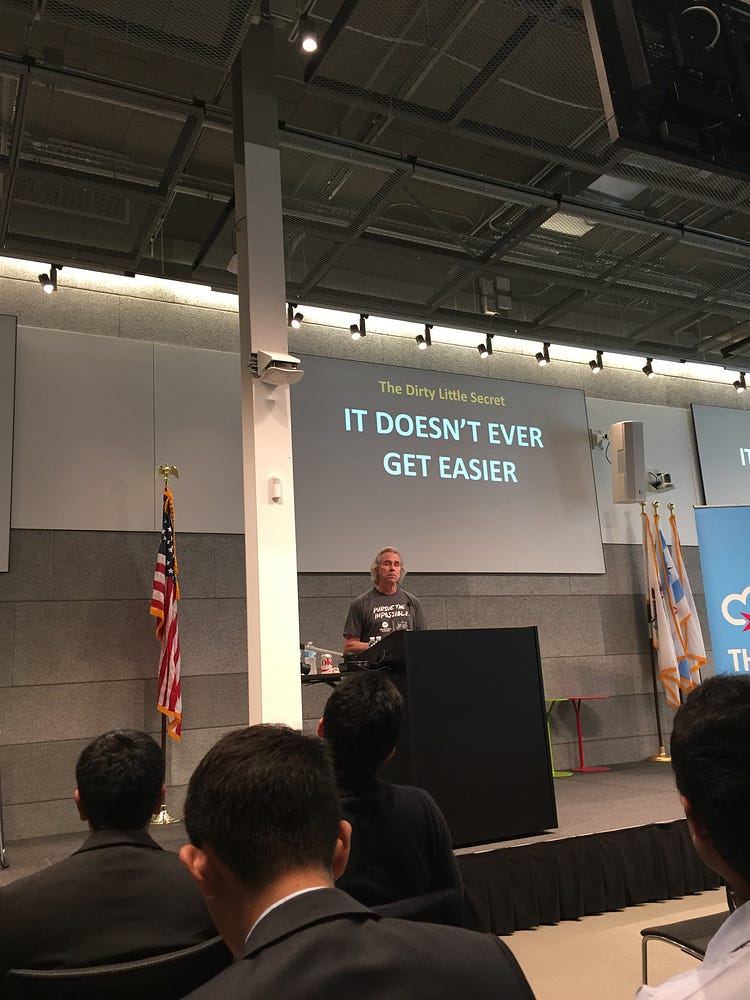
The Dirty Little Secret. It Doesn’t Ever Get Easier
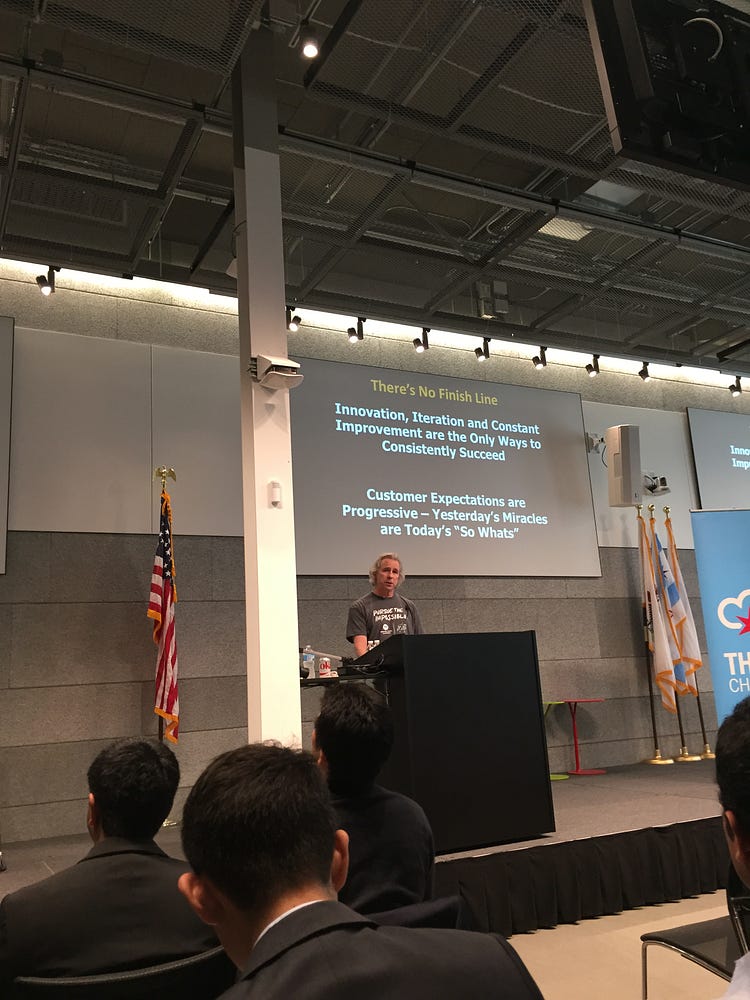
Innovation, Iteration and Constant Improvement are the Only Ways to Consistently Succeed. Customer Expectations are Progressive — Yesterday’s Miracles and Today’s “So Whats”
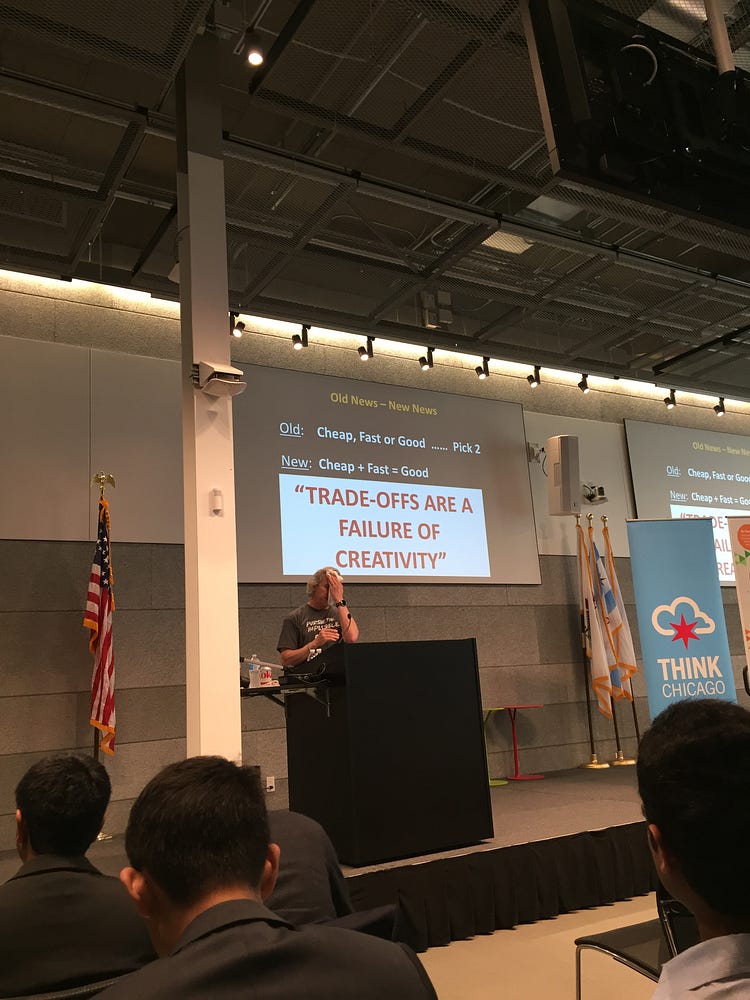
Trade-Offs Are A Failure Of Creativity
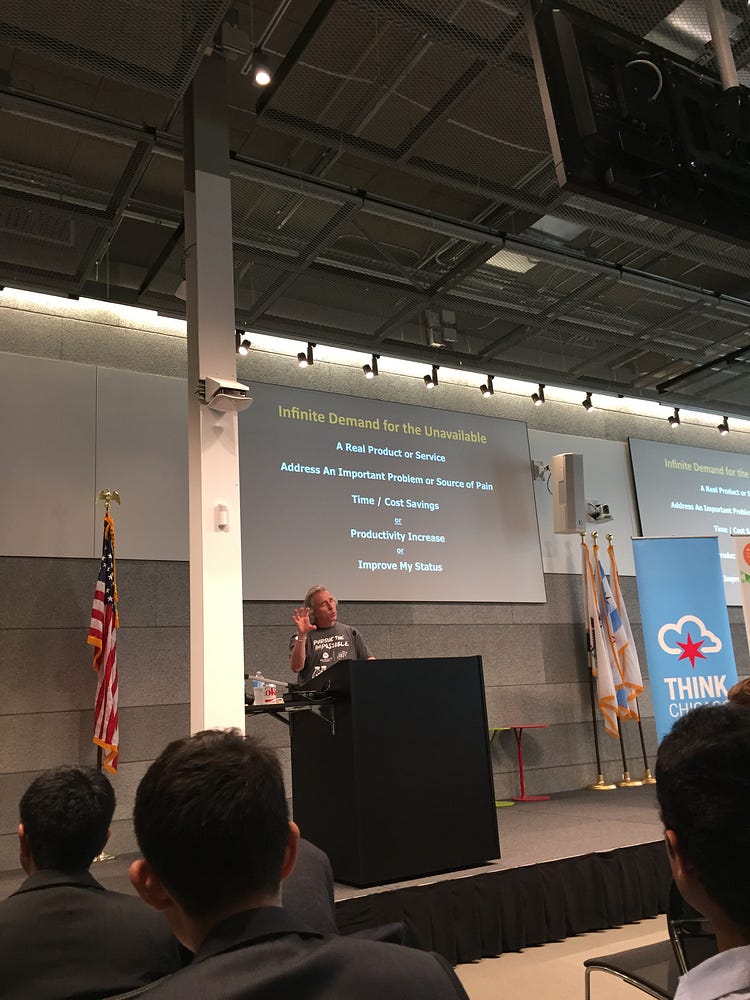
Infinite Demand for the Unavailable. A Real Product or Service. Address An Important Problem or Source of Pain. Time/Cost Savings or Productivity Increase or Improve My Status

Why Concepts Fail? 1. Fail to Meet a Real Customer Need 2. Not Ingrained in User Behavior 3. Too Easy to Replicate 4. Incapable of Evolution 5. Awakes a Sleeping Giant 6. Triggers Monopoly or Other Litigation 7. Appears Commodity-Like. 8. Technology Lowers Entry Barriers To Soon 9. Rejected By Customer Culture 10. Inadequate Alliances.
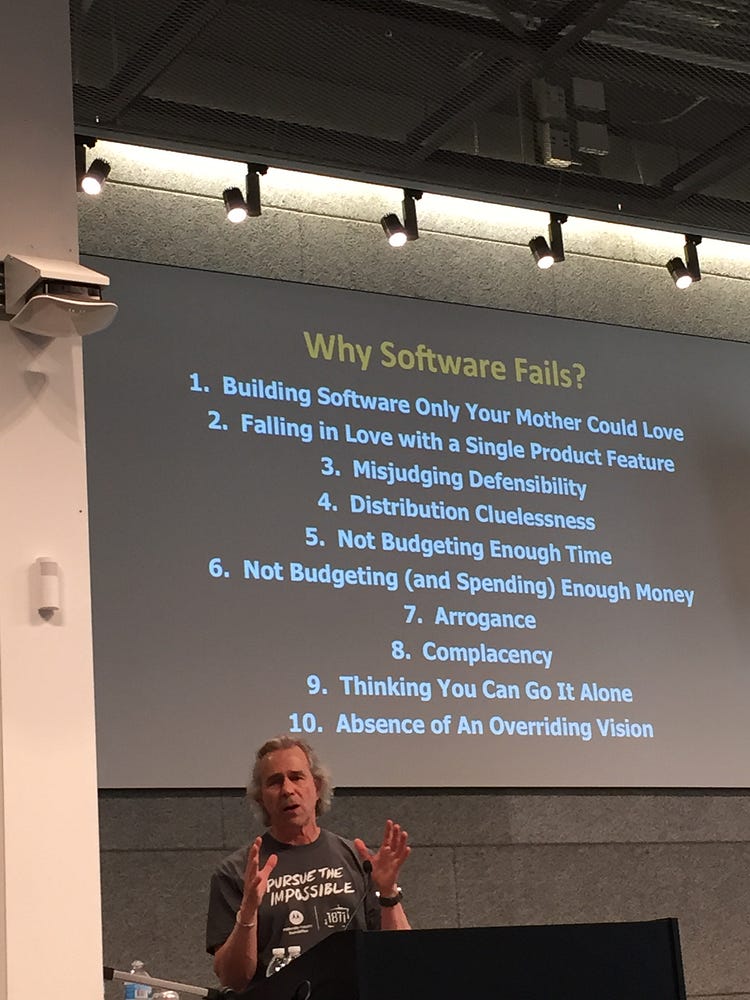
Why Software Fails?
1. Building Software Only Uour Mother Could Love
2. Falling in love with a Single Product Feature
3. Misjudging Defensibility
4. Distribution Cluelessness
5. Not Budgeting Enough Time
6. Not Budgeting(and Spending) Enough Money
7. Arrogance
8. Compacency
9. Thinking You Can Do It Alone
10. Absence of An Overriding Vision
I have to add one actually: staying in development too long instead of doing rapid iterations. Release the minimum viable software to users and listen to their response and use response to iterate.
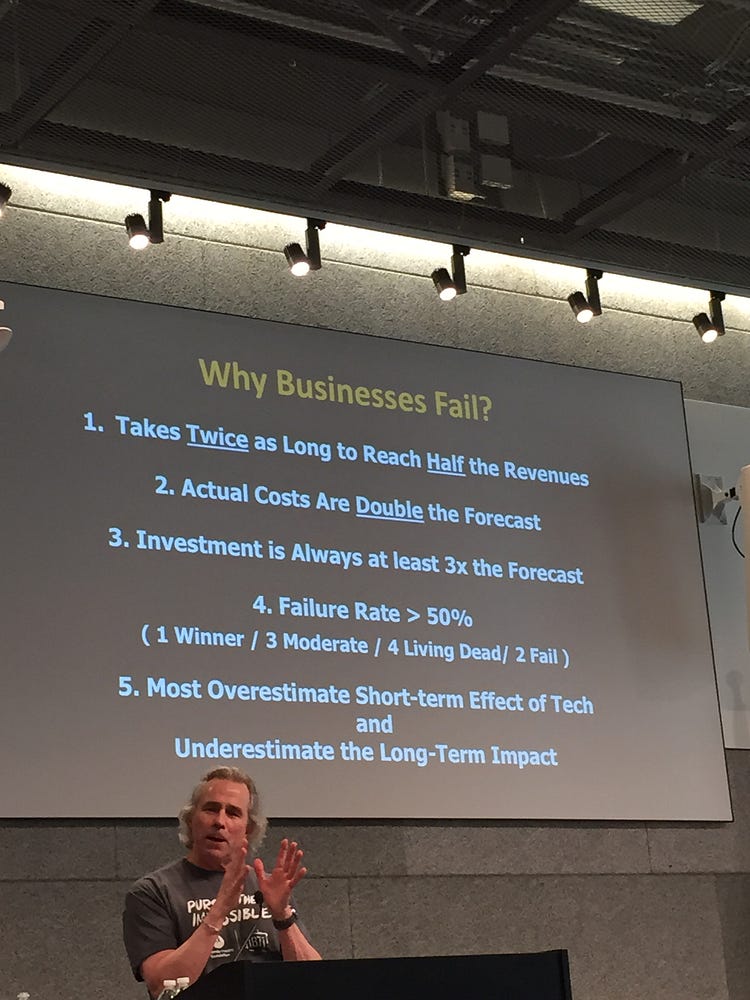
Why Business Fail?
1. Takes Twice as Long to Reach Half the Revenues
2. Actual Costs Are Double The Forecast
3. Investment is Always at least 3x the Forecast
4. Failure Rate > 50% (1 Winder / 3 Moderate / 4 Living Dead / 2 Fail)
5. Most Overestimate Short-term Effect of Tech and Underestimate the Long-term Impacet.
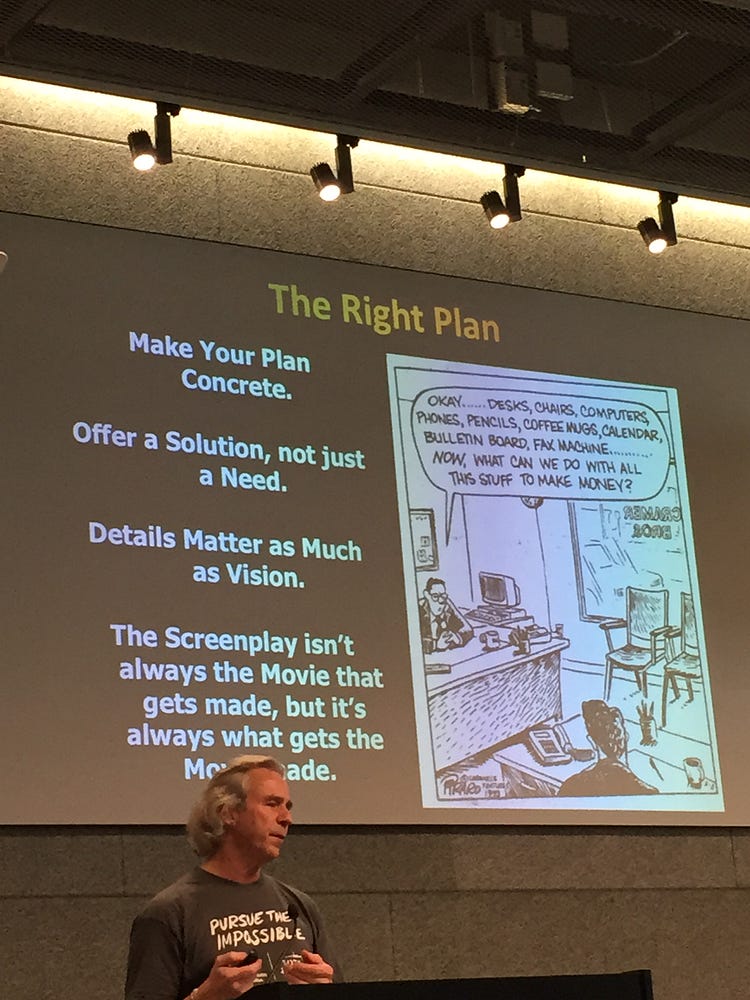
The Right Plan: Make Your Plan Concrete. Offer a Solution, not just a Need. Details Matter as Much as Vision. The Screenplay isn’t always the Movie that gets made., but it’s always what gets the Movie made.
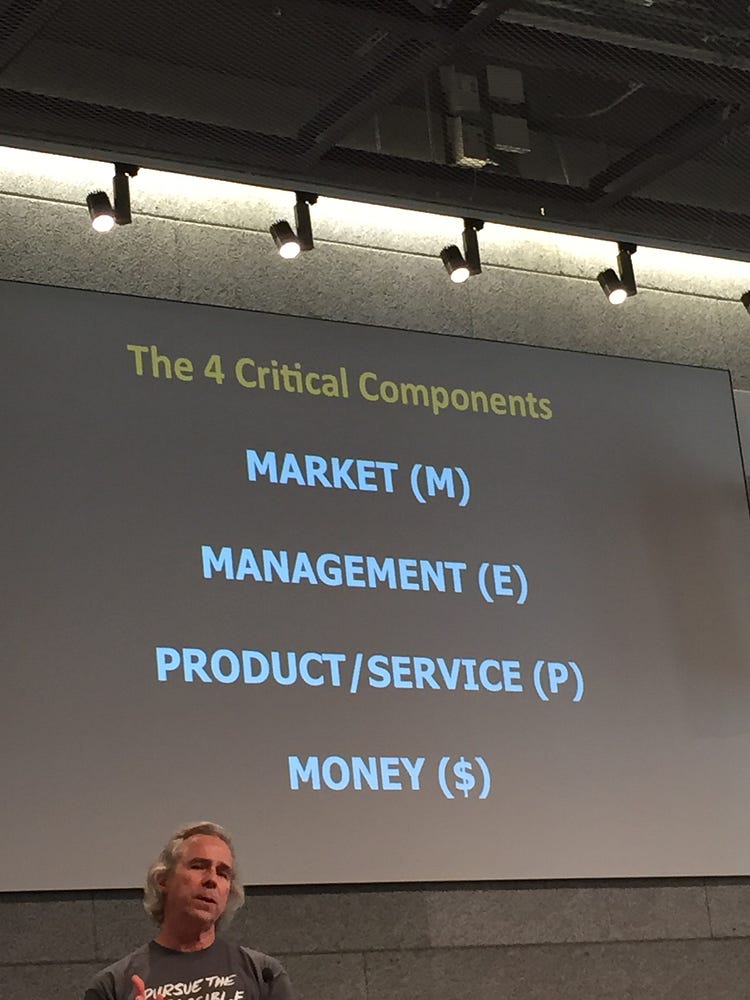
The 4 Critical Components: Market, Management, Product/Service and Money
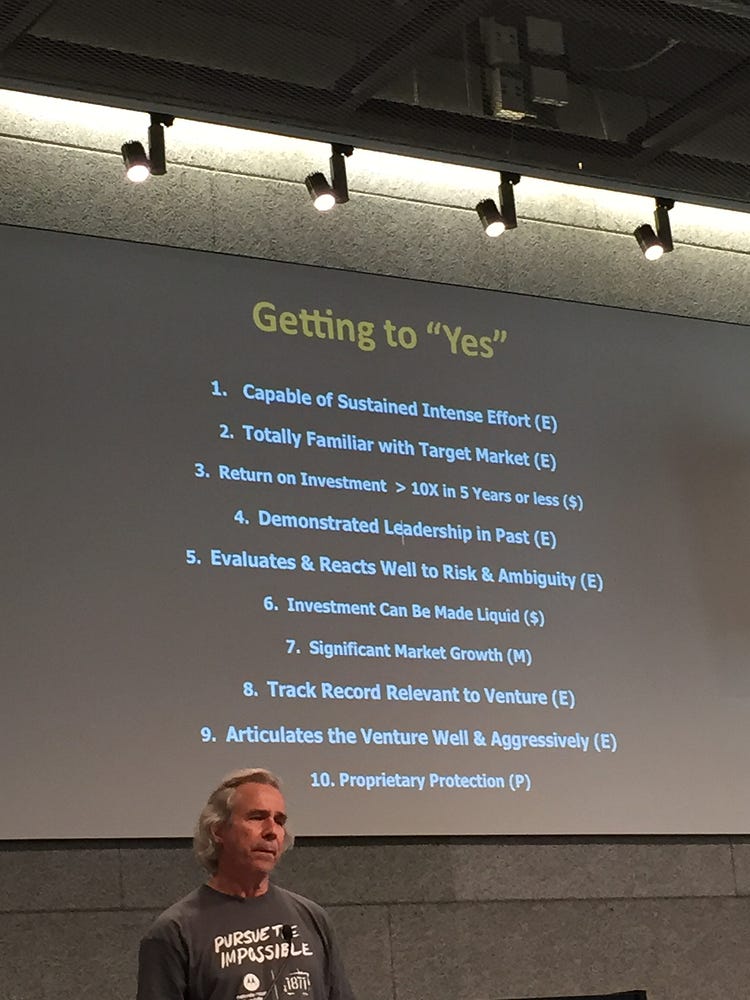
Getting to “Yes”.
1. Capable of Sustained Intense Effort
2. Totally Familiar with Target Market
3. Return on Investment > 10 Times in 5 Years or less
4. Demonstrated Leadership in Past
5. Evaluates & Reacts Well to Risk & Ambiguity
6. Invesment Can Be Made Liquid
7. Significant Market Growth
8. Track Record Relevant to Venture
9. Articulate the venture Well & Aggressively
10. Proprietary Protection
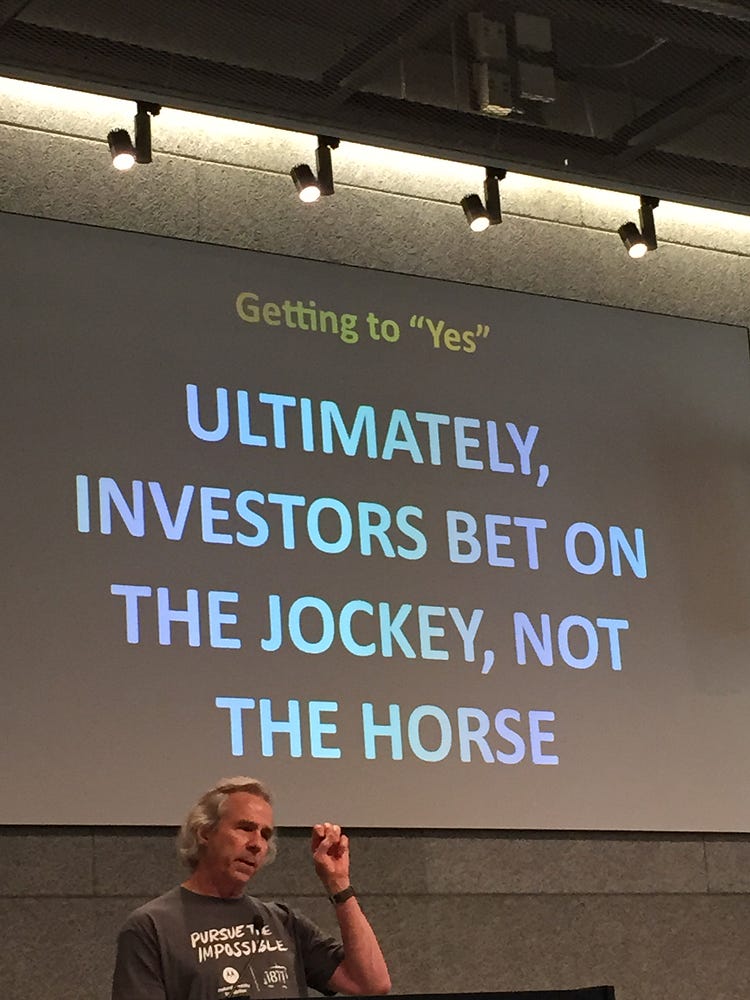
Ultimately, Investors Bet on the Jockey. not the Horse
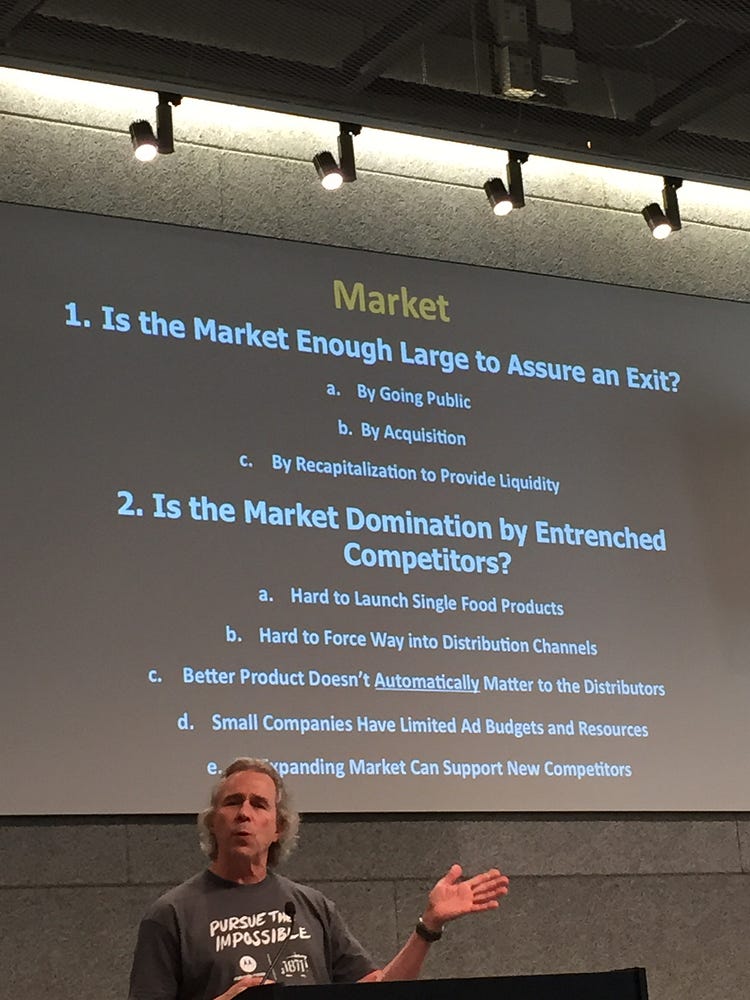
Market
Is the Market Enough Large to Assure an Exit?
a. By Going Public
b. By Acquisition
c. By Recapitalization to Provide Liquidity
2. Is the Market Domonation by Entrenched Competitors?
a. Hard to Lauch Single Food Products
b. Hard to Force Way into Distribution Channals
c. Better Products Doesn’t Automatically Matter to Distributors
d. Small Companies Have Limited Ad Budgets and Resources
e. Expanding Market Can Support New Competitors
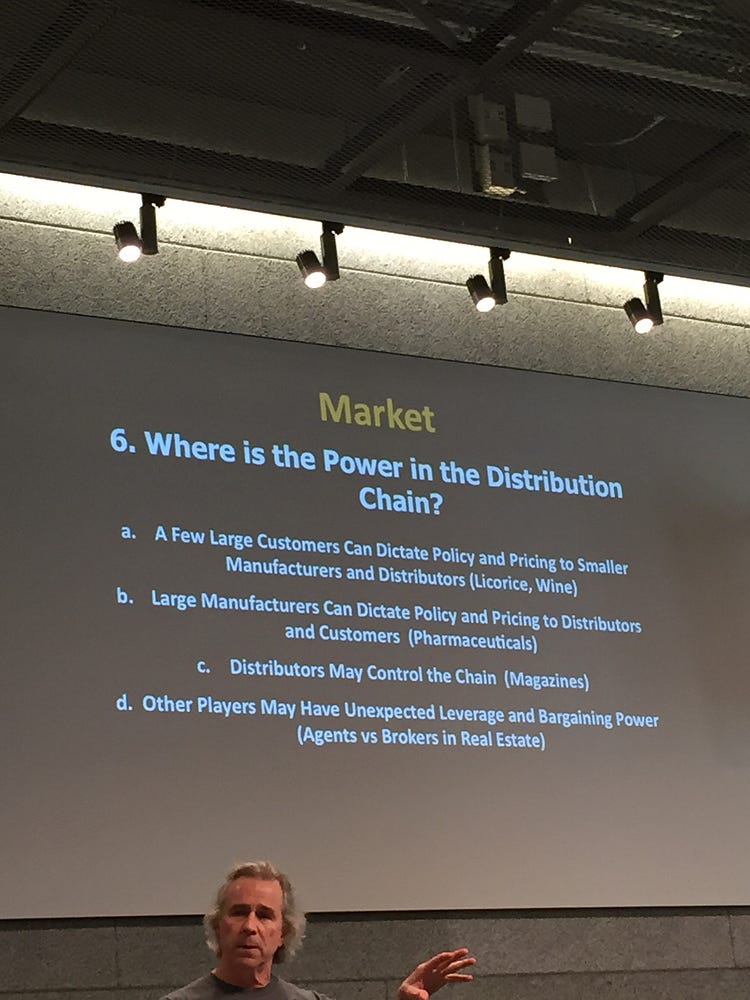
Where is the Power in the Distribution Chain?
a. A Few Large Customers Can Dictate Policy and Pricing to Smaller Manufacturers and Distributors(Licorice, Wine)
b. Large Manufacturers Can Dictate Policy and Pricing to Distributors and Customers (Pharmaceuticals)
c. Distributors May Control the Chain (Magazines)
d. Other Players May Have Unexpected Leverate and Bargaining Power (Agents vs Brokers in Real Estate)
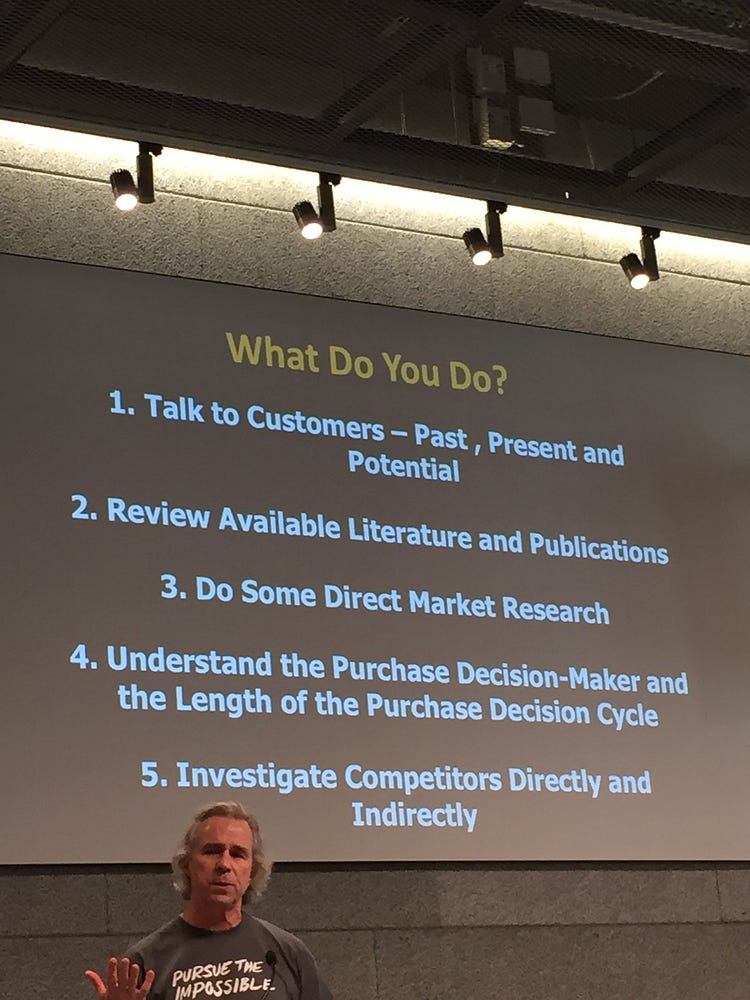
What Do You Do?
1. Talk to Customers: Past, Present and Potential
2. Review Available Literature and Publications
3. Do Some Direct Market Research
4. Understand the Purchase Decision-Maker and the Length of the Purchase Decision Cycle
5. Investigate Competitors Directly and Indirectly
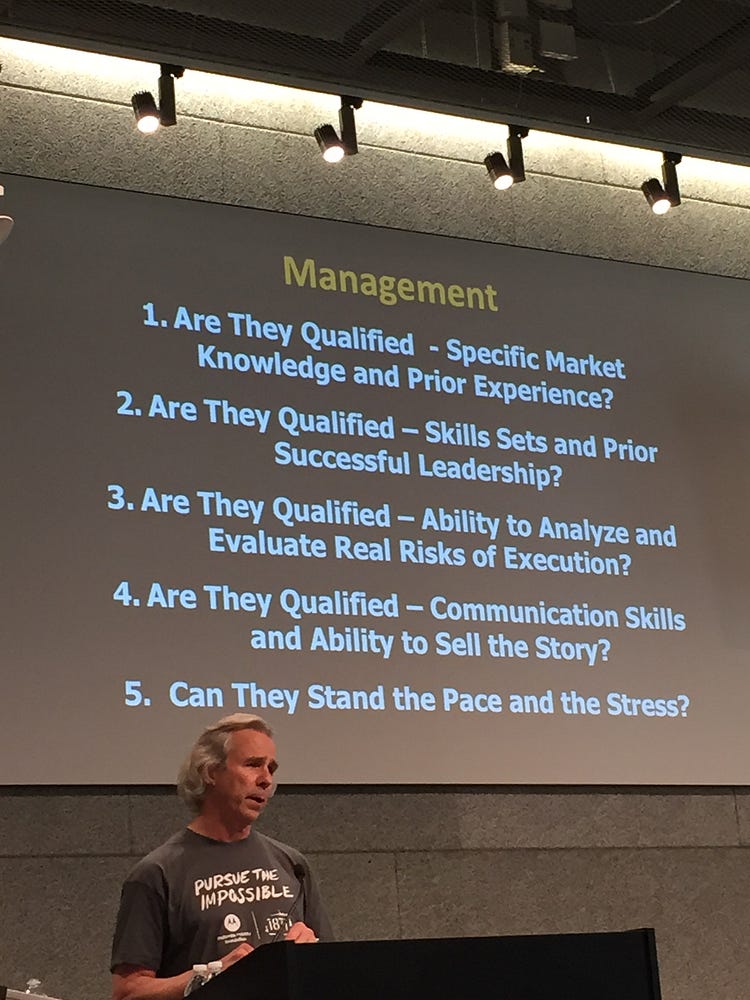
Management
1.Are They Qualified: Specific Market Knowlefge and Prior Experience?
2.Are They Qualified: Skills Sets and Prior Successful Leadership?
3.Are They Qualified: Ability to Analyze and Evaluate Real Risks of Executions?
4.Are They Qualified: Communication Skills and Ability to Sell the Story?
5.Can They Stand the Pace and the Stress
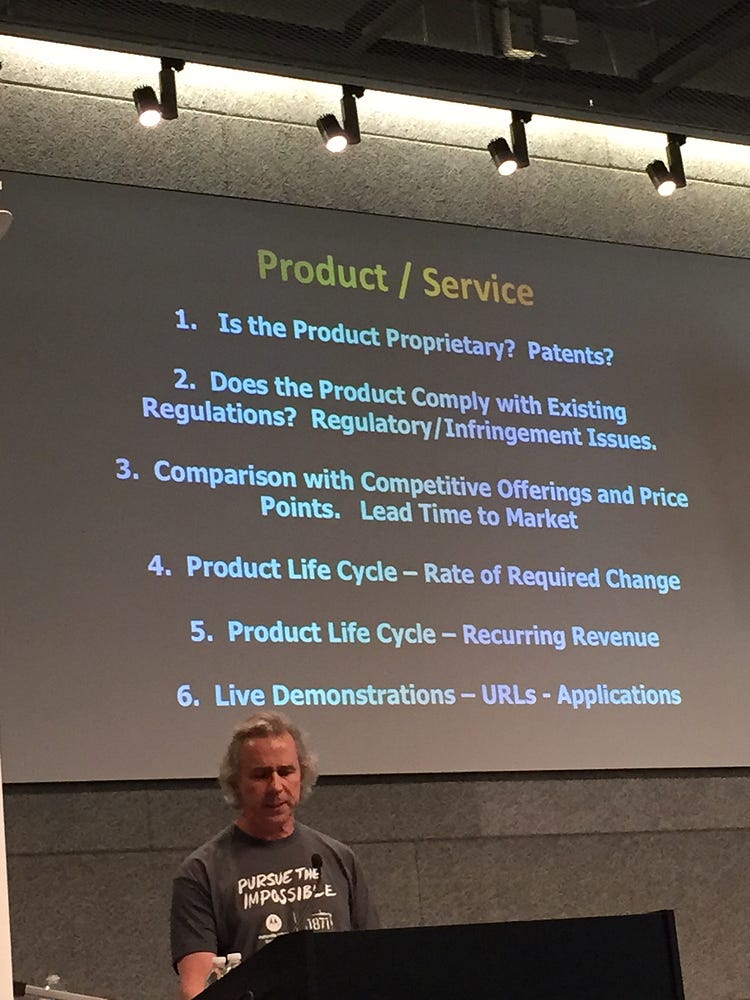
1. Is the Product Proprietary? Patents?
2. Does the Product Comply with Existing Regulations? Regulatory/Infringement Issues?
3. Comparison with Competitive Offerings and Price Points. Lead Time to Market
4. Product Life Cycle — Rate of Required Change
5. Product Life Cycle — Recurring Revenue
6. Live Demonstrations— URLs — Applications
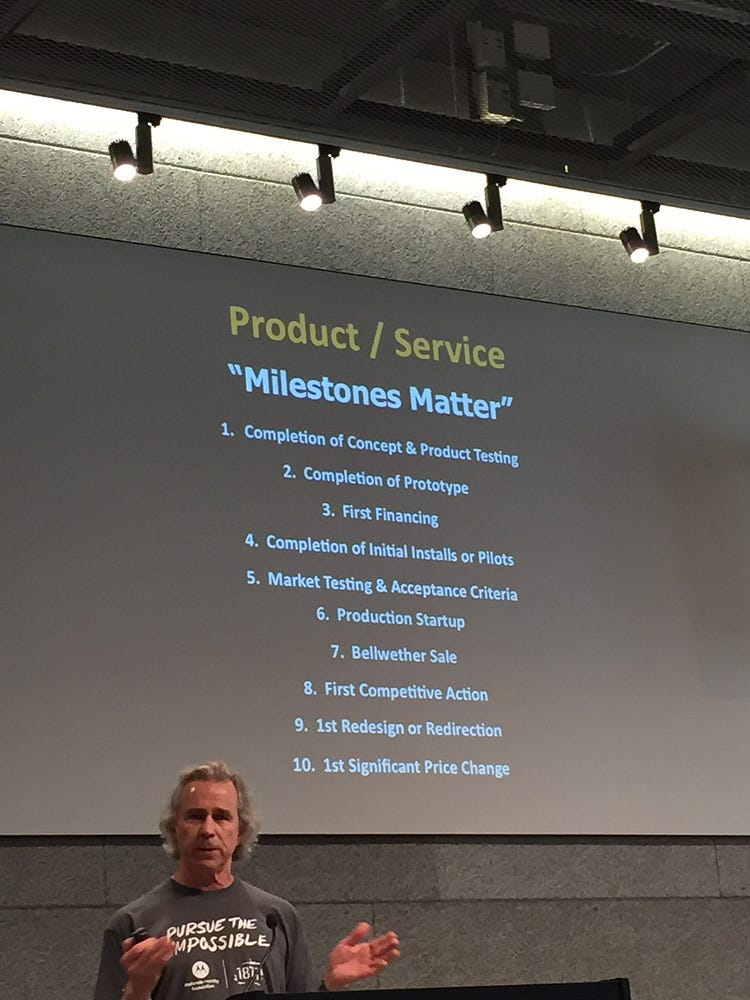
Milestones Matter
1. Completion fo Concept & Product Testing
2. Completion of Prototype
3. First Financing
4. Completion of Initial Installs or Pilots
5. Market Testing & Acceptance Criteria
6. Production Startup
7. Bellwether Sale
8. First Competitive Action
9. 1st Redesign or Redirection
10. 1st Significant Price Change

Don’t Make It Easy to “No”
EASY “YES”:
Relevant Market
Strong Team
Clear Focus & Presentation
Simple Value Statement
Proprietary Position
Clear Competitive Advantage
EASY “NO”
Wrong Market or Audience
Wrong Team
Bad Facts / Inconsistencies
Unrealistic Projectionws
No Concession to Competition
Story Too Long / Too Complex
Want to talk? I am on Twitter @RoyLi1004.
